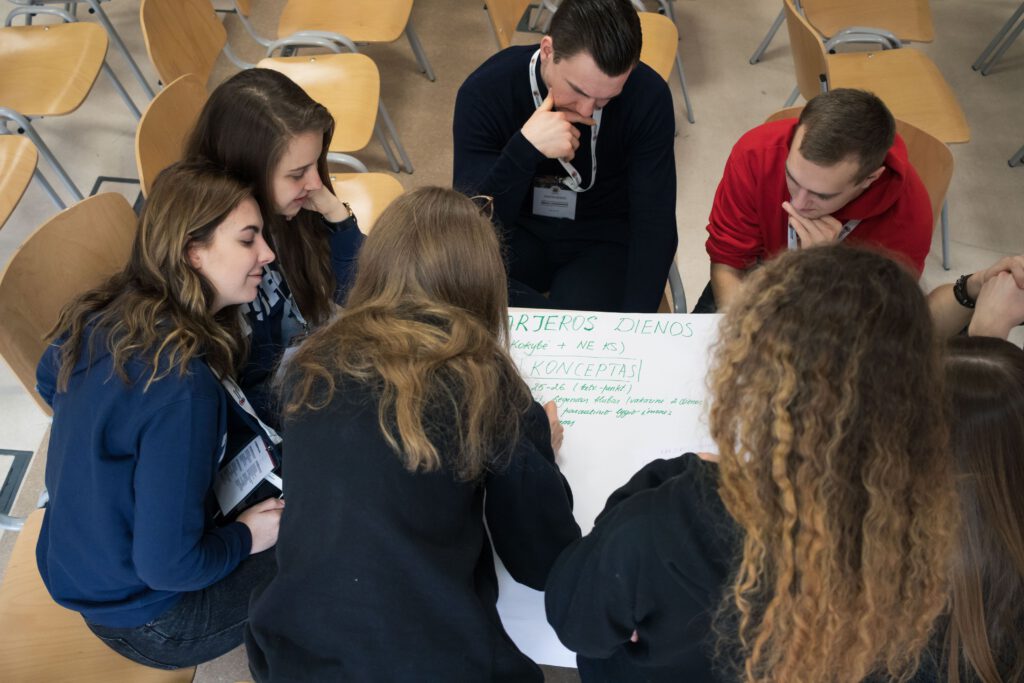“Volunteering remains a hidden pathway, yet it is important to our society because it melds individuals and groups, personal action and organized action, work and hobbies, activism and citizenship” (Peter, 2009)
Curious about becoming a volunteer? Or perhaps you are looking for reasons to encourage others to join? In this article, we share our ideas on why choosing volunteering will help to enrich your experience in university.
1/ To feel useful/purposeful
One reason for volunteering is linked to the desire to feel useful, to work to reduce social and economic inequalities and to contribute to leading the world towards a better future. Daniel Gaxie, a sociologist, considers that feeling as a contributor to a just cause is one of the first rewards of volunteering. Giving time to a cause and feeling useful to others can be comforting or can even increase the self-confidence of volunteers. This desire to be useful appears to be a motivating factor shared by all volunteers of LieU’topie.
2/ Acquiring news skills/competencies
“It allowed me to discover how an organization works, to meet awesome people, to delve into cultural project management and get to know a bit better what I would like to do later in life as well as what values I would like to have in my work environment.” (Malaurie, 23 years old)
Becoming a volunteer in an organization is a way for people to discover a completely new universe that has its own mechanisms and practices, different from the ones of a university. Volunteering in different kinds of activities can help to identify one’s interests, as in the case of Malaurie, and thus help to define a future professional career.
Becoming a volunteer is also an opportunity to acquire new skills. Organizations can be a gateway to professional life by offering a first professional experience to youth during which they can acquire skills and know-how which can then be valued in the labor market.
“My commitment allowed me to develop skills: working together, adapting to other volunteers to create cohesion, adapting to the unexpected, managing the organization of workshops with several stakeholders” (Coline, 24 years)
The acquisition of new skills that can be valued in the labour market is all the more striking in the context of employer organisations. For example, in the LieU’topie association, there is a team of two full-time employees, two civic services and interns on an ad hoc basis. The students who then engage in the association, and more particularly in the board of directors, acquire skills in management, and human resources management. Moreover, it is also necessary to know how to set up projects and create and follow budgets. Voluntary commitment then really allows the student to acquire new skills that will be beneficial to him in the realization of a first job.
“My commitment allowed me to develop skills: working together, adapting to other volunteers to create cohesion, adapting to the unexpected, managing the organization of workshops with several stakeholders” (Coline, 24 years)
3/ The feeling of belonging to a group or a society project
Another good reason to volunteer is linked to the idea of belonging to a group or a group project. Indeed, volunteering can be a means of moral gratification. It can bring about a feeling of self-actualisation, and attachment and can help build an individual or collective identity.
When I asked volunteers of our organization why they had decided to volunteer, all of them told me that it was because they wanted to meet other inspiring and committed people. An organization thus allows people that share common interests or values to meet, gather and create together projects and activities that inspire them.
Pauline HUT 01/10/2022. Pauline is a co-president of the student organization LieU’topie.


